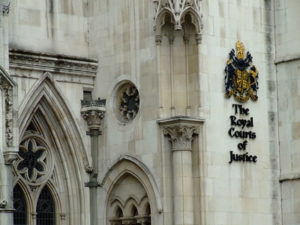Manslaughter and the ‘PC Harper Case’

The death of PC Harper has been in the news again recently. The officer tragically died after he was dragged behind a car that was fleeing from the scene of a theft.
Unusually, at the same time that the Attorney General applied for the sentences to be reviewed as they were too lenient, the three accused applied to appeal against their sentences. In addition, two of the accused, Bowers and Cole, appealed against their conviction.
Long pleaded guilty to manslaughter and was given an extended sentence of 19 years with 16 years’ imprisonment. Bowers and Cole were convicted of manslaughter and given 13 years’ detention.
All three agreed that they used to go out “thieving” together. A car (‘’the Seat’’) would be used to get to and from the places they would steal from, and if they saw the police, they agreed that they would drive away as fast as possible. Bowers accepted in his evidence that someone might be killed in such a situation, but he didn’t think about it at the time. Cole said that somebody might get hurt in a police chase.
The day before the incident in question all four came across a builder’s van and took a long strap they thought might be of use as a tow rope. The next day Cole, Bowers and Long attached the rope to a quad bike they had seen earlier in the day. Long drove away towing the quad bike which Cole was sat on to steer, with Bowers in the front passenger seat.
Two police officers responded to the report of the theft, and as the police car approached both vehicles stopped. Cole ran from the quad bike to the car as he was approached by PC Harper whilst PC Shaw turned on the blue lights of the unmarked police car. The Seat drove past the police car as Cole dived into the Seat shouting “drive, drive, drive”. As the Seat accelerated away, the strap was still attached hanging loose in a loop on the road surface, PC Harper’s feet were caught in the loop, and the Seat dragged him along.
Long and the others knew the car they encountered was a police car and they realised something was caught in the loop although they did not realise it was a person. PC Harper was knocked unconscious as he fell to the floor but received catastrophic injuries from being dragged at 45mph and died shortly after coming free of the loop.
Long pleaded guilty to manslaughter and was found not guilty of murder, as the jury could not be sure he knew that a person was being dragged by the Seat.
Bowers and Cole were convicted of manslaughter as they had assisted the incident. At trial and on appeal, the defence argued that theft was not a violent offence and so could not be the reason for unlawful act manslaughter. By the time of the officer’s death, the theft was complete, and the quad bike had been detached from the strap. The escape itself was not a criminal offence as they were not in custody, so the unlawful act could only be the dangerous driving.
The Court refused the application to appeal against conviction as they believed the defence’s reasoning was unrealistic. The escape and the dangerous manner in which it was carried was a part of the plan to steal.
The sentencing judge found that Long had been trying to dislodge what was being dragged behind the car and that all three “drove on, not knowing or caring what it was they were dragging”. The journey was carried out at “terrifying speeds”, and they must have known there was a real risk of death to the police, other road users and themselves. It was noted that Bowers and Cole were younger than Long; both had learning difficulties and were more likely to follow someone else’s lead.
The Attorney General argued that the sentencing judge should have sentenced outside of the range as PC Harper had met “a dreadful death when acting in the execution of his duty and for the protection of the public”. Long should have been given a life sentence and if his sentence should be increased then so should those of the other two. She also submitted that unnecessary decreases had been made for youth and learning difficulties.
The Court did not accept that the risk shown by Long was worthy of a life sentence. Their reasons for appeal overlooked the important points a judge must consider when assessing the level of risk of a young offender.
The appeal was an unusual one as it was put on the basis that the judge failed to break away from the sentencing guidelines. No explanation was given why the judge was required to turn aside from the guidelines, the structure and the guidelines was not addressed. There were no grounds for the sentences being held as too mild. The Court was also satisfied that none of the grounds of appeal against the sentences were arguable.
The involvement of the Attorney General in this case has been heavily criticised by leading lawyers as being motivated more by politics than sentencing law. The response of the Court of Appeal, in such a strong way, gives confidence in the sentencing put in place provided by sentencing guidelines. This will act to ensure judges do not feel the temptation to increase sentences to satisfy any public demand and opinions.